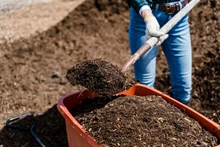
The State Cabinet Minister for Rural Development and Panchayats, Agriculture and NRI Affairs, Kuldeep Dhailwal, stated that the state government would take responsibility for providing canal waters to the farmers in Punjab.
He said that previously 20 percent of the entire cost was borne by panchayats but now the government would take over all the costs
The minister tried to alleviate the worries of the farmers regarding climate change and the paranoia about the high-temperature effect on wheat. “We will not leave the farmers in the lurch,” he said. The minister also added that while there are plans for further development of mandis in the district, worth Rs. 11.47 crore. The minister also added that around Rs.126 crore would be spent to create linkages and accelerate the development of mandis all over Doaba.
The tail end of canals and drains is another demand among the farmers across the state and the region. “We have incurred expenditure on water provision, the state government has previously borne 80 percent of the cost of water provision and 20 percent was borne by panchayats. The panchayats did not have funds so now we will be bearing the entire cost. And no project will be closed hereafter, as the decision has already been taken. The crops will receive water till the tail end.”
When asked about climate change, the minister said, “Vatavaran is changing everywhere and in Punjab as well. We will tackle this issue together and not leave the farmers in the lurch.”
He also touched on the deaths in Punjab due to the pesticide content in water. The minister said, “We received reports of heavy pollution in water during the Basmati season. And we have banned 10 pesticides. If we get reports of adverse effects on human health about any other pesticide, we will take action against that as well.”
“The Chief Minister has already given the green for a new initiative to address pollution in Buddha Dariya, Ludhiana We will attempt to bring in the industries to the issue as well, as the government is concerned about it,” he said.
The development work worth Rs. 2.29 crore was inaugurated by laying the foundation stone at Maqsudan Mandi in Jalandhar. A sum of Rs. 100 crore has been sanctioned for the mandis for 2022-2023. Out of Rs. 100 crore, 18 crore worth is being spent to reconstruct Jalandhar-based mandis. The works to be undertaken are the repair and maintenance of link roads, the building of boundary walls, brick platforms, CC flooring, steel sheds, new kiosks, and other public utilities. The first phase began in Doaba on Wednesday, and the second phase is scheduled to start soon as well.
While the agricultural minister stated on Wednesday that the government would not abandon farmers in the face of unusually high temperatures and a decreased wheat yield in February, Dr. Jaswant Rai, the district's chief agricultural officer, advised farmers to exercise caution in the face of increased heat and to be wary of attacks from aphids and yellow rust on their crop.
While agricultural experts have already advised farmers to use "light irrigation" in the face of extreme heat, the agri officer's advice to farmers in Jalandhar made the same recommendation.
The warning stated that excessively warm temperatures are being experienced in February as a result of climate change. The wheat crop's output could be affected by the increased heat. The heat wave could have an impact on wheat crops. To protect crops from the effects of heat, farmers are urged to use light watering. Crops may also be dusted with 2% potassium nitrate. Also, farmers are advised that the heat may make crops more vulnerable to aphid and yellow rust infestations. They are instructed to monitor their crop. The usage of insecticides suggested by the agricultural university is also advised.











